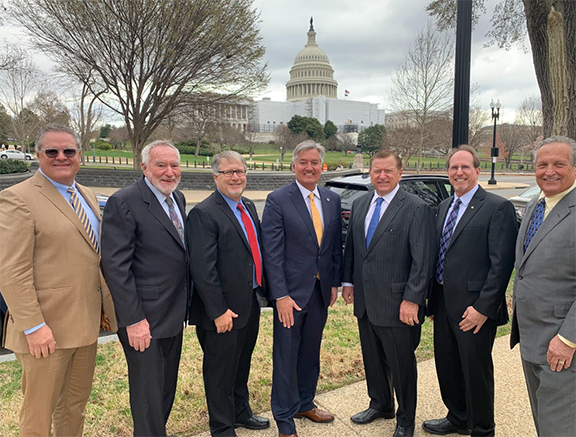

In March, Groendyke Transport participated in National Tank Truck Carriers Call on Washington, where NTTC and leaders of its company members met with 15 representatives and Senators on Capitol Hill.
Why it matters: In-person advocacy plays a critical role in NTTC’s efforts to influence legislation and regulatory changes that benefit employees in the tank truck industry, especially drivers.
What they’re saying: “It’s important for all of us who work in the tank truck industry to make our voices heard, and this event gives us unmatched access to do exactly that,” said Groendyke Transport President and CEO Greg Hodgen, who participated in the event. “The tank truck industry has unique challenges even when compared to the rest of the trucking industry, and we play a vital role in the nation’s economy. So it’s important we have a seat at the table for any legislation affecting our segment of trucking.”
The big picture: While the tank truck industry only accounts for 6 percent of the trucking industry’s revenue, it also makes up 33 percent of the tonnage hauled. The industry hauls fuels for all transportation, including travel by road, rail, air and water. It delivers raw materials for manufacturing, machinery, and even infrastructure upkeep through products like asphalt.
As a founding member of NTTC, Groendyke has understood the importance of advocating for the industry’s needs for decades. The Enid, Okla., based carrier has had three past NTTC Chairmen – former President Max Barton, Chairman of the Board John D. Groendyke, and Hodgen.
“Without the fuel, raw materials for manufacturing and machinery, and infrastructure materials such as asphalt, all segments of the U.S. economy would grind to a screeching halt,” Hodgen said.
Every other year, NTTC schedules this event near the beginning of the term to increase their chance to meet with as many members of Congress as possible. This year, some of the priorities addressed that affect Groendyke and its employees were:
Other topics lower in priority discussed during the Call on Washington were:
Go deeper: NTTC members spoke with the following members of Congress during the Call on Washington:
What’s next: All employees of the tank truck industry can do their part to advocate for this vital part of the nation’s economy by contacting your U.S. Representative or Senator.